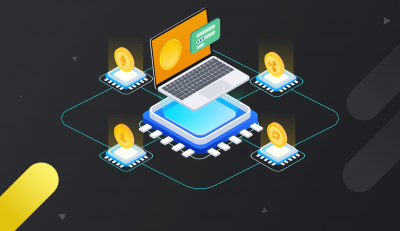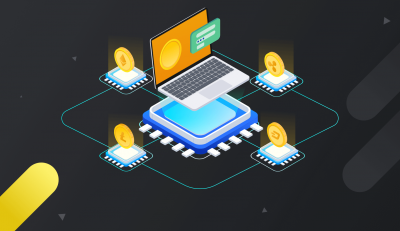Impact of Blockchain Technology on the Digital Economy
Blog: NASSCOM Official Blog

Blockchain technology has been in existence for over a decade. Sure, it is the term that comes to mind when many are checking Bitcoin’s live price in India. But there’s much more to it than many recognize. While blockchain tech might sound baffling and complicated, it is actively being incorporated for a variety of uses, especially building and supporting the digital economy. The digital revolution spans almost every aspect of economies worldwide, and the virtual nature of cryptocurrencies is being utilized to use and exchange digital information. Here’s how blockchain technology is impacting the digital economy:
- Reduction in verification and networking costs
Blockchain technology and cryptocurrencies such as Bitcoin have been associated with a reduction in various key costs that a company or organization incurs when it comes to verifying different data sets that are crucial to carrying out digital transactions. The cost of substantiating and verifying any transaction in the digital medium and can be recorded on the blockchain is imperative and has been reduced significantly in recent years.
This is crucial for any market to function as important data, such as the basic and key attributes of goods and services, firms, and even individuals need to be verified, audited and confirmed for such digital transactions to take place. This process can be grueling due to its labor-intensive nature and often requires a third-party to ensure overall market safety.
However, blockchain technology is bringing in a positive change in this regard by making this verification process cheap through the careful and lucrative use of digital ledgers. This immutable nature and time-stamping ability of the blockchain certainly affirm that this innovative technology facilitates a reduction in costs. How? By providing cheaper and more viable forms of settlement and networking.
Naturally, this encourages experts as well as novices to utilize this network for a series of functions: whether they want to verify data sets or even just buy Bitcoin in India. This nifty nature of blockchain is now encouraging more and more companies to make this significant virtual switch.
- Architectural change
Blockchain and cryptocurrencies have ushered important architectural changes in the digital economy. This change is tied to their use of a token or cryptocurrency to incentivize several processes. Be it growth, operations, or securing digital platforms, these digital tokens can bootstrap the development and expansion of entire ecosystems. Qualified individuals can build new applications on top of underlying and existing protocols.
One key feature of this architectural change is that it does not require them to seek intermediaries or network operators’ permission. Hence, participants in the digital economy can essentially use cryptocurrencies such as Bitcoin and Ethereum to reach consensus on a magnanimous scale that is global. This is imperative and useful, especially when it comes to the allocation of scarce resources, and drastically changes and impacts the scope and scale of what an online platform and community can achieve.
Whether someone wants to buy Bitcoin in India or incentivize various processes in their organization, blockchain tech is certainly bringing about important architectural changes in the digital economy.
- Automation
Finally, it has been predicted by several industry experts that the scope and scale of automation provided by blockchain technology is the next step towards making a more stable, viable, and efficient digital economy. Cryptocurrencies and tokens are the next natural step when we talk about any organizational form. They can transcend geographical boundaries and their limitations with ease and enable effective and efficient allocation of resources.
Moreover, by leveraging AI and automating the aggregation of interests, preferences, and vital information, blockchain can help us overcome our cognitive limitations and help with the building and development of digital ecosystems that facilitate basic transactions and extend to other organizational functions. These can include the remuneration of ideas, talent, and capital at a huge and previously unimaginable scale. While the combination of blockchain and Artificial Intelligence exists as a largely undiscovered area, it is clear that it is already transforming the digital economy and contributing to its subsequent growth.
Blockchain technology’s potential concerning the digital economy is still mostly untapped and yet to reach the desired maturity level. However, the former’s impact on the digital economy is already visible. It is encouraging individuals to not just buy Bitcoin in India, but look at blockchain technology as a more innovative, unique, and potent system to carry out traditional organization functions.
The post Impact of Blockchain Technology on the Digital Economy appeared first on NASSCOM Community |The Official Community of Indian IT Industry.
Leave a Comment
You must be logged in to post a comment.








